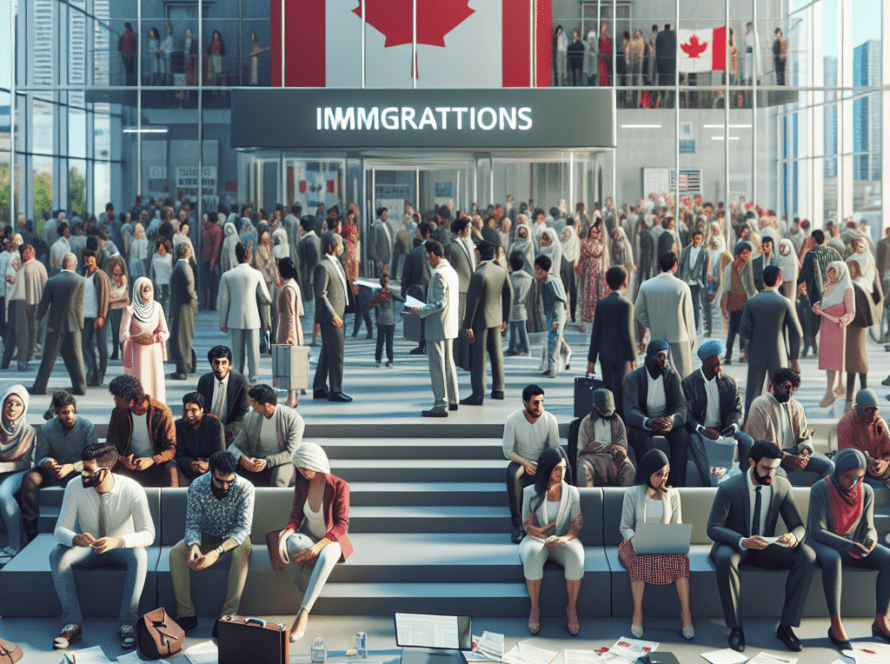Updated IRCC Processing Times: August 2025 Insights

Navigating Canada’s Immigration Landscape: Key Updates on IRCC Processing Times (August 2025)
As of August 6, 2025, Immigration, Refugees, and Citizenship Canada (IRCC) has released updated processing times that reflect significant changes across various immigration categories. These updates provide crucial insights for individuals and families seeking to make Canada their new home, but applicants must remain vigilant as these times are estimates, not guarantees. Here’s a breakdown of the latest processing timelines, key trends, and strategies for a smoother application experience.
Key Updates on Processing Times
-
Citizenship Applications: The processing time for citizenship grants remains stable at 10 months. However, applicants should note potential delays for those applying from outside Canada due to additional verification requirements. The renunciation of citizenship has improved, with processing reduced to 5 months.
-
Permanent Residency (PR) Cards: New PR cards are now processed in 40 days, a reduction of 5 days, while renewals have seen an increase to 28 days—likely due to heightened demand. This reflects IRCC’s push for efficiency amidst rising application volumes.
-
Family Sponsorship: Processing times for family sponsorships are notably longer, particularly for applications involving Quebec. For instance, spouse sponsorship from outside Quebec has increased to 13 months, while applications from Quebec have surged to 41 months. This highlights the complexities of Quebec’s unique immigration agreements.
-
Canadian Passports: For those needing passports, the timelines remain consistent, with 10 business days for in-person applications and 20 business days for mail. Urgent options are available for those with immediate travel needs.
-
Economic Class Applications: The fastest processing remains through Express Entry streams, with the Canadian Experience Class taking 5 months, while other programs like the Start-Up Visa can take as long as 52 months. This disparity underscores the importance of selecting the right immigration pathway.
- Temporary Resident Visas: Processing times vary significantly by country. For example, visitor visa applications from India currently take 31 days, up from previous estimates, while applications from the U.S. remain steady at 20 days. Such fluctuations emphasize the necessity of staying informed about country-specific trends.
Insights and Trends
The latest IRCC processing times reveal a mixture of stability and challenges. While the agency has improved processing for some categories, the backlog of over 842,800 applications, reported in July 2025, continues to strain the system, leading to longer wait times in certain areas, especially for family sponsorships and complex economic programs.
Key Observations:
- Increased Demand: The uptick in family sponsorship applications and PR card renewals suggests a growing interest in Canadian residency, which has direct implications for processing times.
- Quebec’s Unique Challenge: Applications from Quebec face longer timelines due to the province’s distinct immigration framework, necessitating extra planning for prospective sponsors.
- Express Entry Efficiency: Programs like Express Entry remain more efficient, making them attractive options for skilled workers seeking faster processing.
Expert Tips for a Seamless Application Process
To navigate these complexities effectively, consider the following strategies:
- Submit Complete Applications: Incomplete applications are a primary cause of delays. Utilize IRCC’s checklists to ensure all necessary documents are included.
- Stay Informed: Regularly check IRCC’s updates for real-time changes in processing times. Bookmark their official website for easy access.
- Plan for Quebec Applications: Allow extra time for applications involving Quebec, and familiarize yourself with the province’s specific requirements.
- Use Official Resources: Leverage IRCC’s various tools and FAQs to prepare a strong application and track your progress using the Client Application Status tool.
- Seek Professional Guidance: For complex immigration paths, consider consulting a Regulated Canadian Immigration Consultant (RCIC) to mitigate risks.
Conclusion
With the landscape of Canadian immigration continuously evolving, understanding the latest processing times and employing strategic planning can significantly enhance your chances of a successful application. As you navigate these pathways, remain proactive and informed, making use of official resources to streamline your journey toward Canadian residency.
By keeping abreast of processing times and trends, you can better manage expectations and prepare for the next steps in making Canada your home.



